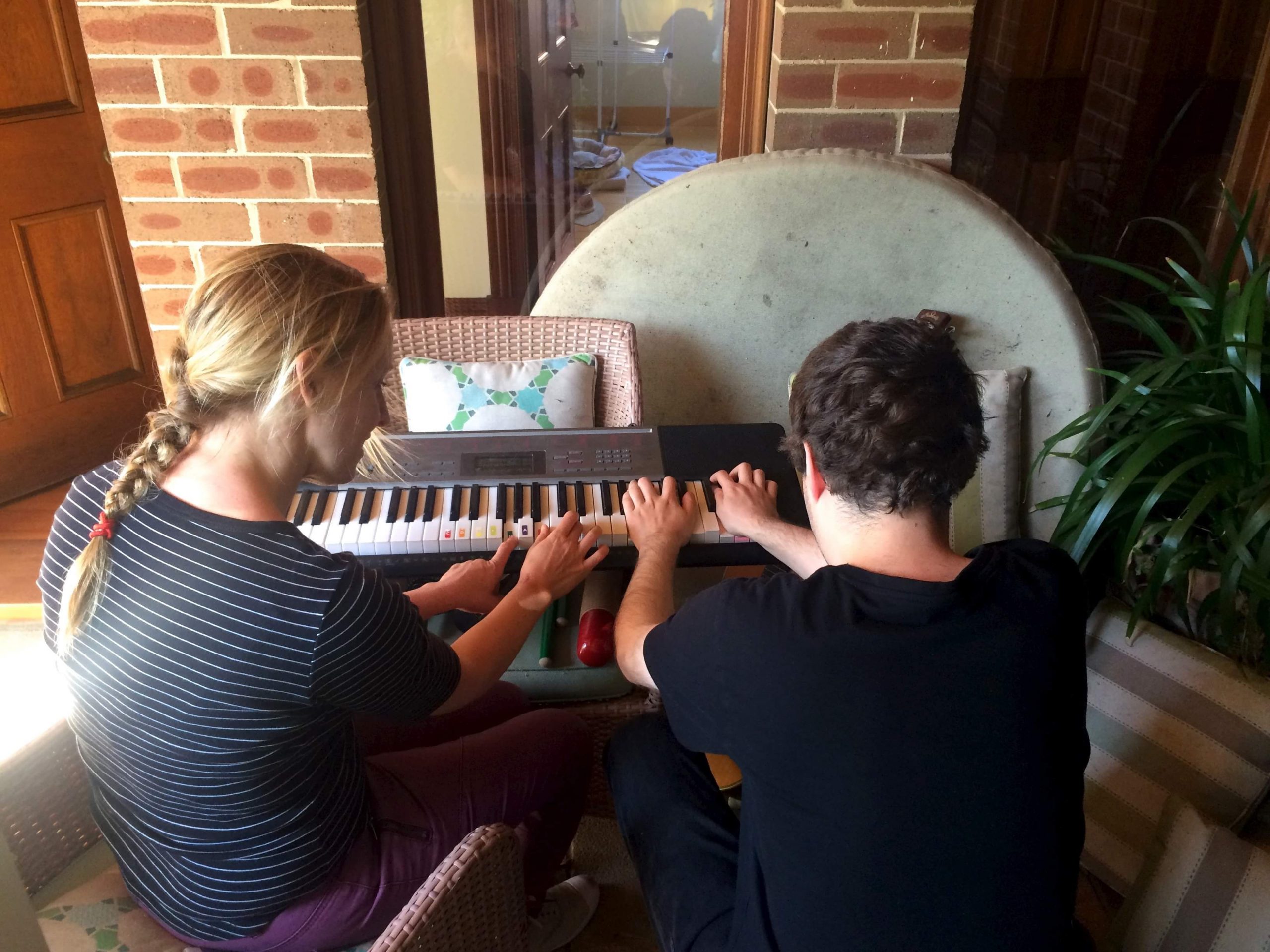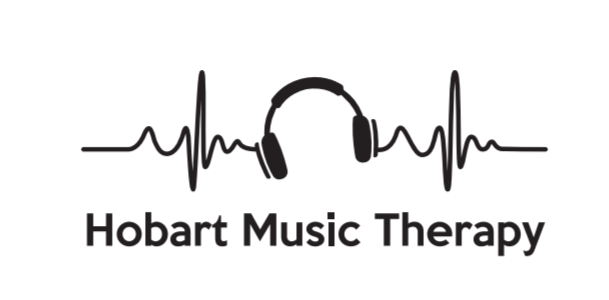Services
Music Therapy sessions are designed after an initial consultation and/or assessment, and can be conducted at schools, daycares, aged care facilities, or in the comfort of your home.

Early Childhoood
Your toddler or pre-schooler’s speech, language development, movement and emotional/sensory functioning could all benefit from Music Therapy. Children often sing before they speak and dance before they walk! Music Therapy is a motivating and fun therapy for little ones. Hobart Music Therapy will tailor sessions specifically designed to your child’s needs, in the comfort of your own home or at your child’s pre-school or daycare. A group session could be arranged if this suits your needs better.

Disability Support
During my years of practice, I’ve seen first hand how music therapy can assist hugely with challenges associated with developmental delays, speech and language difficulties, autism spectrum disorder, intellectual and/or physical disabilities. Music therapy is also proven to nurture independence, self-confidence and self-esteem, aid functional speech and communication, improve family relationships and provide relaxation. I can come to your home or child’s daycare or school, to provide a fully individualised session or arrange for clients to join a group session.

Aged Care
Many studies throughout the world demonstrate music’s role in aiding in memory recall, identity awareness, mood management, pain management, depression, among other issues, in the care and treatment of those with dementia and Alzheimer’s. Hobart Music Therapy offers tailored individual music therapy, one-on-one and group sessions, whether at home or in an aged care facility.
To learn more about how music therapy can help dementia, have a look at the resource page links. Click here
Music therapy can help with
Emotional Awareness
Communication skills
Sensory processing
Anxiety Issues
Social Skills
Literacy and numeracy
Motor Planning
Isolation & Loneliness
Memory & Recall
Frequently Asked Questions
What is Music Therapy?
Music therapy is a research-based practice and profession in which music is used to actively support people as they strive to improve their health, functioning and wellbeing.
Music therapy is the intentional use of music by a university trained professional who is registered with the Australian Music Therapy Association Inc. Registered music therapists draw on an extensive body of research and are bound by a code of ethics that informs their practice.
Music therapists incorporate a range of music making methods within and through a therapeutic relationship. They are employed in a variety of sectors including health, community, aged care, disability, early childhood, and private practice. Music therapy is different from music education and entertainment as it focuses on health, functioning and wellbeing.
Music therapists are committed to supporting people of any age and ability regardless of musical skill, culture or background. (Australian Music Therapy Association website, 2017)
How does Music Therapy Work?
Music is the only activity which is proven to activate every part of the brain. Listening to and especially making music, releases dopamine and serotonin and creates new neural pathways. By using musical elements, such as rhythm and melody, in a planned and intentional way, to achieve non-musical goals, music therapy can offer a world of possibilities. Just remember how you learned your alphabet!
What can I expect from my first session?
For individual consultations, an initial assessment is conducted (which may extend to two sessions), where musical responsiveness is observed and musical preferences are determined. An assessment summary is then provided, which indicates emerging goals. These goals can be reviewed and changed at any time. Sessions may include active music making, music listening and discussion, singing, and/or songwriting.
Is Music Therapy clinically proven to work?
Scientific research, revealing both qualitative and quantitative outcomes, has shown that music therapy is a highly effective treatment for a range of conditions. There are ongoing studies being conducted worldwide, continuing to prove the positive benefits of music therapy in healthcare.
Who can benefit from Music Therapy?
Music therapy is prevalent in aged care facilities, hospitals, schools, daycares, allied health clinics and may benefit individuals of all ages, seeking to improve their quality of life, in a unique and effective way.
Is Music Therapy covered by the NDIS or Private Health Care?
Music Therapy is a recognised support by the NDIS to ‘facilitate functional improvement through adjustment, adaptation and building capacity to participate in the broader community’. Music Therapy is provided as an allied health service, similar to speech therapy, occupational therapy and physiotherapy etc.
If you have funding under the category of individual therapeutic support or group therapy support you may choose that funding, or part of that funding, to access music therapy sessions. This is found under the support cluster of ‘Capacity Building’ within the ‘Improved Daily Living’ category.
Terms and Conditions will be given before commencement of service.
Currently, in Australia, music therapy is not covered by Medicare or private health insurance.
What does a group session look like?
Every group session is different depending on the requirements and needs. Here is an example of a children’s group session.
The NBK children enjoyed a fantastic music experience today with Ivy's Mum Selena. Selena is a qualified Music Therapist and she came in today, to sing, dance and play instruments with the children. What can we say . . . . Selena is awesome !!!!
Posted by Neutral Bay Kindergarten on Monday, 18 September 2017
Getting Started is Easy
Free 20 Min Chat
A introductory discussion about Music Therapy to gain and understanding of how it may help your unique situation.
Book Appointment
Organise a one on one consultation for a more indepth review of your situation
1st Session!
Get started with the first session which is an assessment and introduction to Music Therapy.
Fees
Please contact Selena to discuss cost of sessions.
Group session costs are negotiated depending on size and frequency.
A home or school visit may incur a small travel fee.
NDIS FUNDING
The NDIS recognises music therapy as a therapeutic support for people with disability, and funding is available through NDIS for music therapy services. You do not need a referral from another allied health or medical practitioner to access music therapy services.
Hobart Music Therapy is currently accepting self or plan-managed participants.
Contact Me
Ask a question or book an appointment below.
